"Saint Anthony, you who were so full of faith and compassion, intercede for us before God. Help us find what we have lost, both material and spiritual. Guide us in our struggles and lead us closer to Christ. We ask for your powerful intercession and your prayers. Amen."
ST. ANTHONY OF PADUA
ST. ANTHONY OF PADUA
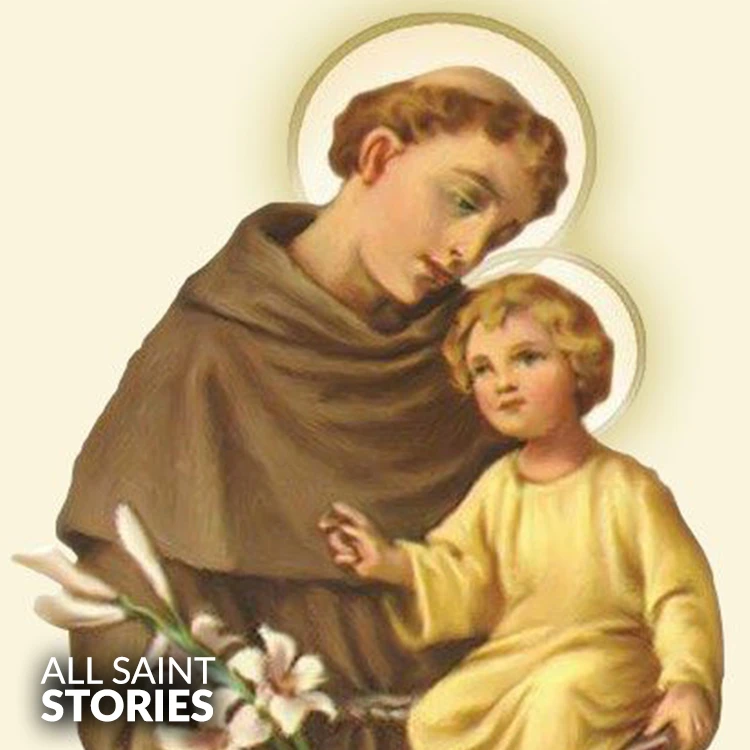
St. Anthony of Padua, a Franciscan friar and Doctor of the Church, is remembered for his incredible eloquence in preaching and his miraculous gifts. Born in Lisbon, Portugal, he became a revered preacher and theologian in Italy, known for his deep faith, compassion for the poor, and devotion to the Virgin Mary. He is often called upon to find lost things, due to his renowned ability to work miracles.
St. Anthony of Padua, born Fernando Martins de Bulhões on August 15, 1195, in Lisbon, Portugal, is one of the most popular and widely venerated saints in the Catholic Church. Raised in a noble and religious family, he received a solid education in theology and Latin from a young age. At around the age of 15, he joined the Canons Regular of St. Augustine, dedicating himself to a life of study and prayer.
After several years, he was inspired by the martyrdom of five Franciscan friars in Morocco and left the Augustinians to join the newly founded Franciscan Order, taking the name Anthony. His desire was to become a missionary and die a martyr, but illness forced him to return to Europe after a short mission attempt in North Africa.
It was in Italy that Anthony’s extraordinary gifts became apparent. While living in obscurity at a Franciscan hermitage, he was unexpectedly asked to preach at an ordination. His depth of knowledge, eloquence, and passion stunned all present. Word of his abilities spread rapidly, and St. Francis of Assisi himself soon appointed him as a teacher of theology to the friars—making Anthony the first Franciscan to hold such a position.
Anthony became a renowned preacher throughout Italy and France, drawing crowds of thousands. He was known for his ability to explain complex theology in ways that ordinary people could understand. His sermons often called for repentance, charity, and justice, and he was especially vocal in defending the poor and confronting corruption and injustice.
He is also famous for numerous miracles, both during his life and after his death. Among them are stories of bilocation, healing the sick, and speaking with fish when people refused to listen to his preaching. One of the most beloved miracles attributed to him is the "miracle of the mule," in which a donkey knelt before the Blessed Sacrament, affirming the real presence of Christ in the Eucharist to a doubting heretic.
Anthony died on June 13, 1231, in Padua, Italy, at the age of 35. So profound was his impact that he was canonized less than a year later, on May 30, 1232, by Pope Gregory IX. In 1946, Pope Pius XII declared him a Doctor of the Church, honoring the depth of his teachings and theological insight.
He is best known today as the patron saint of lost items, a devotion that stems from a story in which a valuable psalter was stolen from him and later returned after Anthony prayed for its recovery. As a result, Catholics around the world pray to St. Anthony to help find lost things—both physical and spiritual.
St. Anthony’s tomb lies in the Basilica of Saint Anthony in Padua, a site of pilgrimage and devotion. He is one of the most beloved saints globally, invoked by people from all walks of life for help, healing, and guidance.
Video Not Found
The information on this website is compiled from various trusted sources. While we aim for accuracy, some details may be incomplete or contain discrepancies.
If you notice any errors or have additional information about this saint, please use the form on the left to share your suggestions. Your input helps us improve and maintain reliable content for everyone.
All submissions are reviewed carefully, and your personal details will remain confidential. Thank you for contributing to the accuracy and value of this resource.
Credits & Acknowledgments
- Anudina Visudhar (Malayalam) – Life of Saints for Everyday
by Msgr. Thomas Moothedan, M.A., D.D. - Saint Companions for Each Day
by A. J. M. Mausolfe & J. K. Mausolfe - US Catholic (Faith in Real Life) – Informational articles
- Wikipedia – General reference content and images
- Anastpaul.com – Saint images and reflections
- Pravachaka Sabdam (Malayalam) – Saint-related content and insights
We sincerely thank these authors and platforms for their valuable contributions. If we have unintentionally missed any attribution, please notify us, and we will make the correction promptly.
If you have any suggestion about ST. ANTHONY OF PADUA
Your suggestion will help improve the information about this saint. Your details will not be disclosed anywhere.
© 2026 Copyright @ www.allsaintstories.com

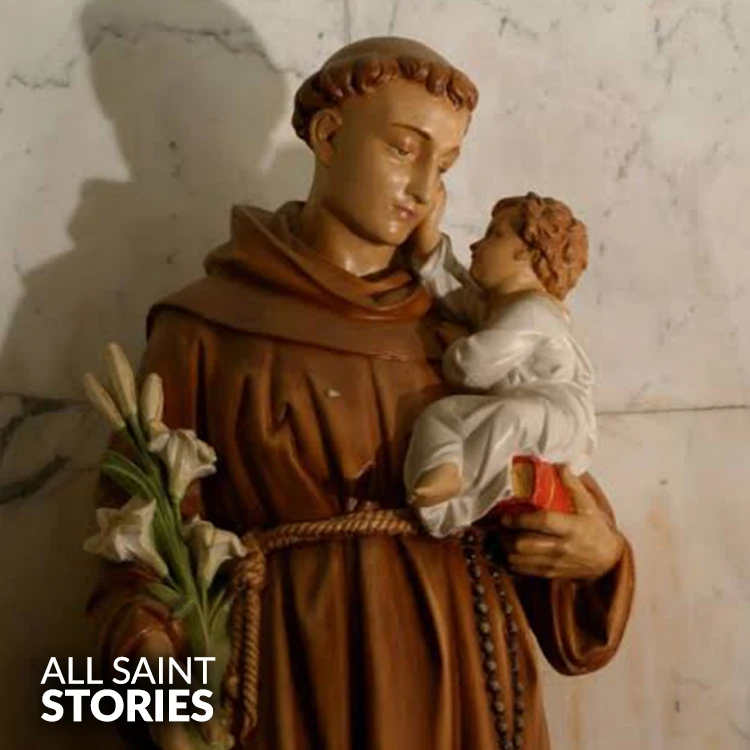
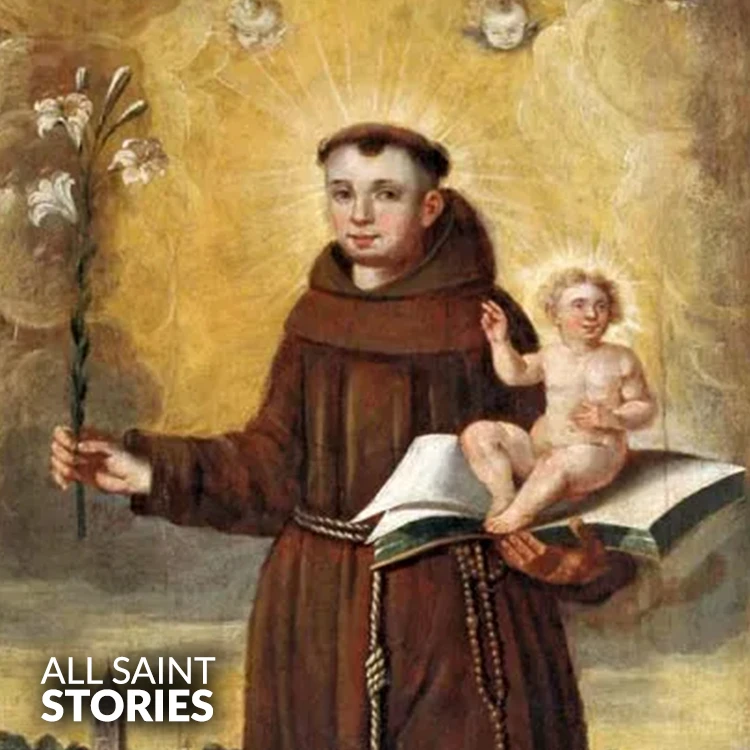
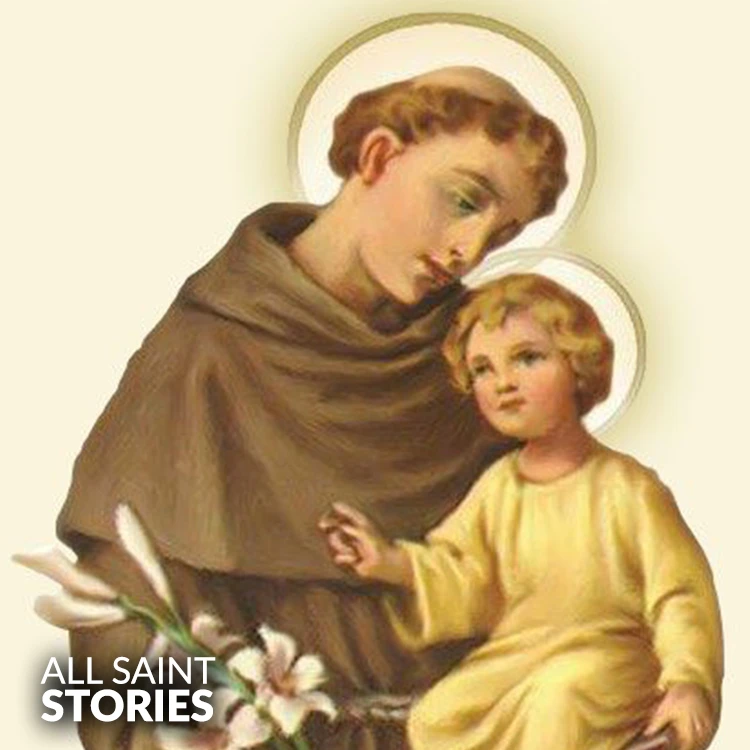
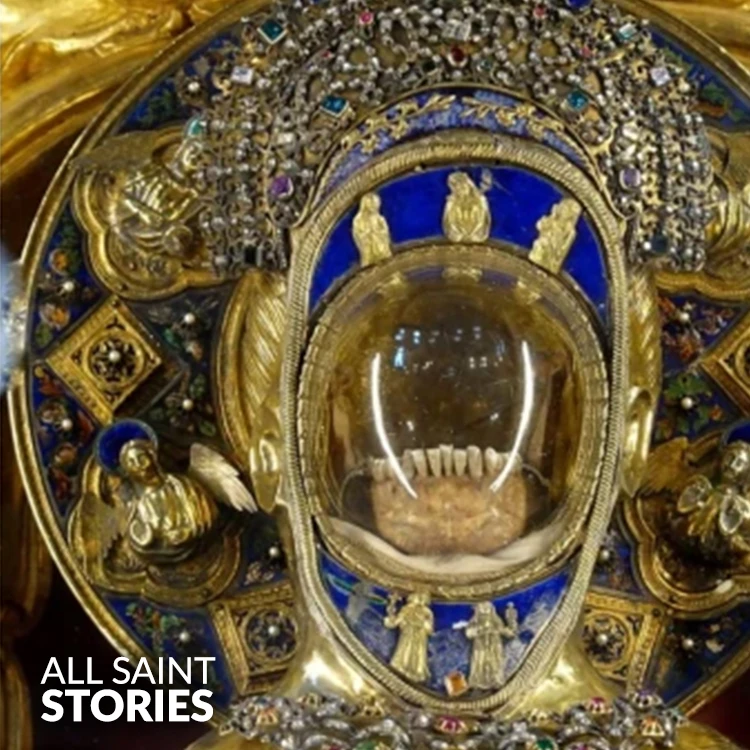
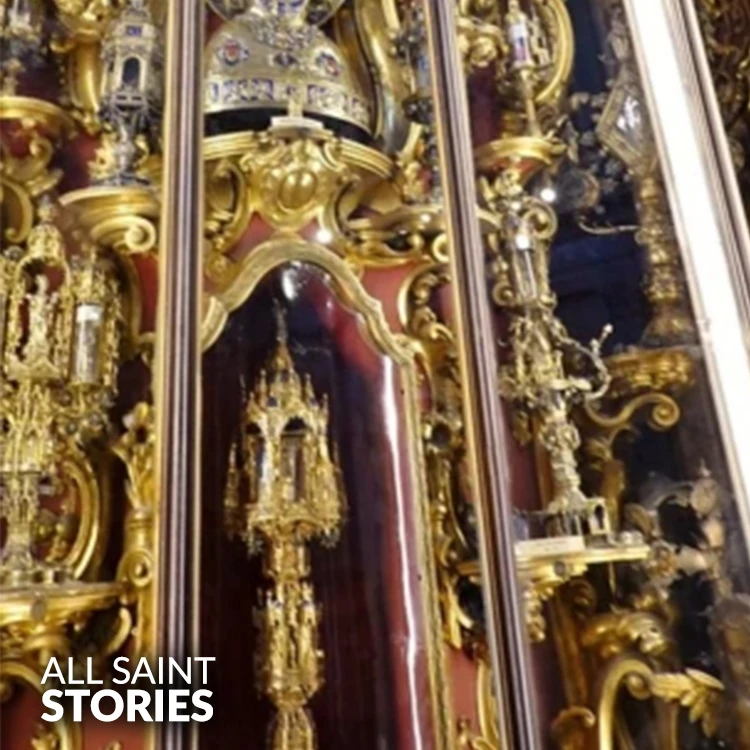

 English
English
 Italian
Italian
 French
French
 Spanish
Spanish
 Malayalam
Malayalam
 Russian
Russian
 Korean
Korean
 Sinhala
Sinhala
 Japanese
Japanese
 Arabic
Arabic
 Portuguese
Portuguese
 Bantu
Bantu
 Greek
Greek
 German
German
 Dutch
Dutch
 Filipino
Filipino